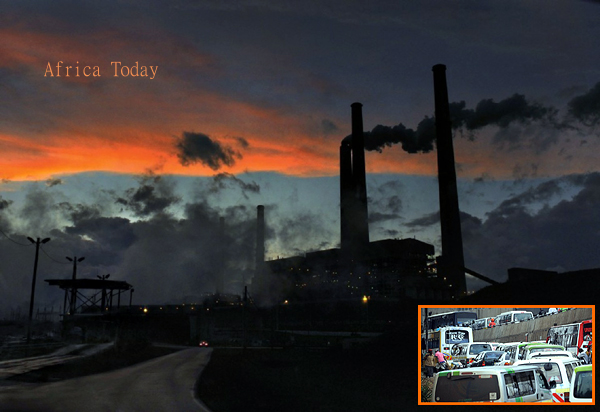 Africa is growing darker than ever.
Africa is growing darker than ever.
Recently Kenya joined Rwanda and Morocco in banning plastic bags. The Ministry’s announcement cited numerous reasons, including the UN “Clean Seas’ initiative. But while this strikes a westerner as environmentally revolutionary, it’s little more than window dressing a far more serious problem.
“As soon as I set foot in Rwanda from neighboring Uganda, it struck me. It’s clean,” wrote a Guardian newspaper journalist after landing in Kigali. That’s the point. It looks clean.
Several years ago scientific studies began sounding the alarm on escalating environmental damage, especially pollution throughout Africa. Only two years after that Guardian newspaper’s praise for Rwanda’s ban on plastic bags, they published “Air pollution more deadly in Africa than malnutrition or dirty water.”
In just the last few months the OECD reported African air pollution threatened Africans more than any other environmental hazard, several scientific groups warned that Africa’s pollution is about to overtake China’s, and CNN compiled several studies to report that Nigeria may be the most polluted country on earth.
Banning plastic bags is better than not banning plastic bags, and it sets the stage for very pretty pictures. But as someone who has several times overnighted in Nairobi this year, I can assure you that toxicity is often something you can’t photograph.
I remember walking down a residential side street to the National Museum only a few months ago on what was a gloriously beautiful day. It was warm and breezy and I was impressed with the attempts that residents had made with flower boxes and flowering bushes.
But suddenly I had a flashback to a similar walk in the L.A. zoo in the 1980s.
My upper chest was stinging, not burning, not aching … no, Jim, I said to myself, this is no heart attack. It’s pollution.
Kenya’s pollution right now comes mostly from cars, despite the fact that the government has banned cars with low emission standards, a rather revolutionary move for a developing country.
Nonetheless, the World Bank estimates the number of cars is doubling every 5-6 years.
“A minibus belches black smoke; the lorry behind it in the traffic jam billows white fumes. Eyes smart in the smog,” writes a more current Guardian reporter.
Bags and cars aren’t the harbinger doom. It’s development – necessary growth in its current form:
Kenya is about to implement a massive new railway between Nairobi and its coastal port of Mombasa. While it flirted with the idea of an all electric railway, the engines are already in the country, and they burn low grade diesel.
Hydroelectricity is on the decline as water resources dry up. Solar is soaring, but on a manufacturing level remains beyond reach. Electricity in Kenya is generated by dirty oil and coal.
Massive new manufacturing campuses in multiple places around the country have virtually no restrictions on environmental waste including pollution.
Kenya and Nigeria seem to be the worst examples, but that’s simply because they’re developing the fastest. No one wants to slow development. But banning plastic bags doesn’t do the trick.